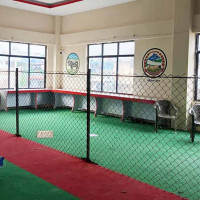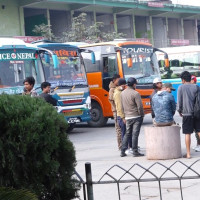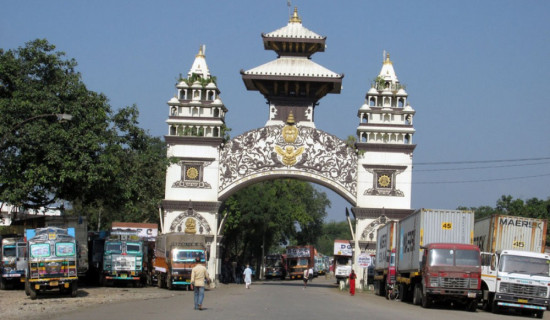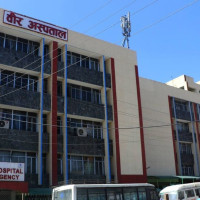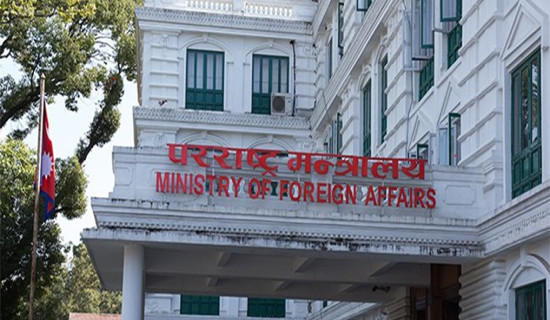- Wednesday, 4 March 2026
Fulfil Statute Revision Promise
It’s been almost a year since KP Sharma Oli assumed the responsibility of premiership last time. He was appointed Prime Minister on July 15, 2024, which is his third tenure as Prime Minister. He earlier served as prime minister from October 2015 to July 2016 and from February 2018 to August 2021. He twice led the government with the support of the CPN-Maoist Centre and he had to quit the government due to a problem and misunderstanding with the CPN-Maoist Centre. Now he is at the helm of power in partnership with the Nepali Congress (NC).
The formation and collapse of the government in Nepal is determined by the number of seats in the lower house of parliament. This is the practice in parliamentary democracies all over the world. However, the case of Nepal is a little different and unique. Following the adoption of a federal system, the country has adopted a hybrid type of electoral system, which is a mix of majoritarian or first-past-the-post and a proportionate system. Of the total 275 seats in the lower house, 165 seats are chosen based on the first-past-the-post system and 110 are selected based on proportionate election system. In other words, 60 per cent of seats are allocated to a majoritarian electoral system and 40 per cent to a proportionate system of election.
Change of coalitions
No political party has a majority in parliament to form a single-party government, which has been the case since we adopted the present electoral system. Thus coalition government is our fait accompli. Change of coalitions has been a common phenomenon, which has accordingly resulted in the change of the government. No prime minister has completed five years in office since 1951. This has often been attributed to the electoral system.
Before the embrace of the present constitution one decade ago, Nepal had a multi-party democracy with a constitutional monarchy. The track record of the monarchy is negative in Nepal, with a few exceptions, as the monarchy often tried to assert power and play against the democratic system of governance. The role of the monarchy had been reduced to a mere titular head during the Rana oligarchy but was restored in 1951 when Nepal entered a new era of multi-party democracy. However, the kings acted against the fundamental principle of democracy and the spirit of the 1951 revolution.
After returning from India following the political change, King Tribhuvan had promised the election for the Constituent Assembly to write a new constitution. King Tribhuvan said in his announcement upon arrival from New Delhi on February 19, 1951 (Falgun 7, 2007 Bikram era) ‘from now onward, the rule of our people ( praja) will be in accordance with the republican (ganatantrik) constitution made by an elected constituent assembly”. But King Tribhuvan deviated from this commitment while his son King Mahendra gave his own constitution, based on which he staged a coup against BP Koirala–led democratically elected government in 1960 and took over power, ending the democratic system of governance. After that, Nepal remained under the absolute monarchy in the name of a partyless Panchayat regime for almost three decades.
The popular movement in 1990 restored democracy and the monarchy was forced to accept the role of constitutional head. But habits die hard and the monarchy again tried to be active. King Gyanendra, who rose to power as a king in 2001, following the royal massacre, once again took direct control of the government, dismissing the elected prime minister and suspending the constitution. Nepali political parties and people then realised that the monarchy was an anti-democratic institution and finally abolished the monarchy in 2008, thereby declaring Nepal a republican state.
With the declaration of the republican system, Nepali people are practically sovereign. However, some people who enjoyed the power and perks during the Panchayat and their supporters have recently tried to get organised, demanding the return of the monarchy. In democracy, freedom of expression and peaceful assembly have been constitutionally guaranteed as fundamental rights. So they can peacefully enjoy this right without breaching the constitutional limit. But the clock of history does not move back and Nepal cannot return to the old days of monarchy.
Now the NC and CPN-UML have a strong coalition government headed by KP Oli. NC and UML agreed to form this coalition government for some specific tasks. The key task is the amendment of the constitution to effect reform on certain arrangements, including the electoral system. The NC and UML think that the electoral system is responsible for a hung parliament and frequent changes of governments. It may be partially true but not correct. There are some countries, mainly in Europe that have a proportional system of election and no single party wins a majority in parliament. But there is political stability and the government functions full time. This is because they have a coalition culture.
Coalition culture
In Nepal, our political parties and politicians do not appear to have a coalition culture and they change the coalition very often, due to which the governments change very frequently. Both the electoral systems have their own good and negative sides. It is said that the first-past-the-post system does not ensure genuine representation of the people. This is a winner-takes-all type in which minorities are not represented. The proportionate system ensures representation based on the votes each and every party secures. In a way, the proportionate representation system is more democratic and better representative. But this system has been misused.
As no constitutions in the world are perfect but they have been gradually improved through timely amendments. The US Constitution has been amended more than two dozen times, while the Indian constitution, too, has been amended scores of times. So the constitution is a dynamic document which should be amended to be more dynamic and better. It is time to effect the amendment based on the experiences over the last decade, in which several provisions are required to be revisited. One of the provisions is the electoral system and both the NC and UML, right at the time of forming the present coalition, promised to work on the constitution amendment. Now it is time for the ruling parties to translate their promises into action.
(The author is a former chief editor of this daily and a former ambassador. lamsalyubanath@gmail.com)




